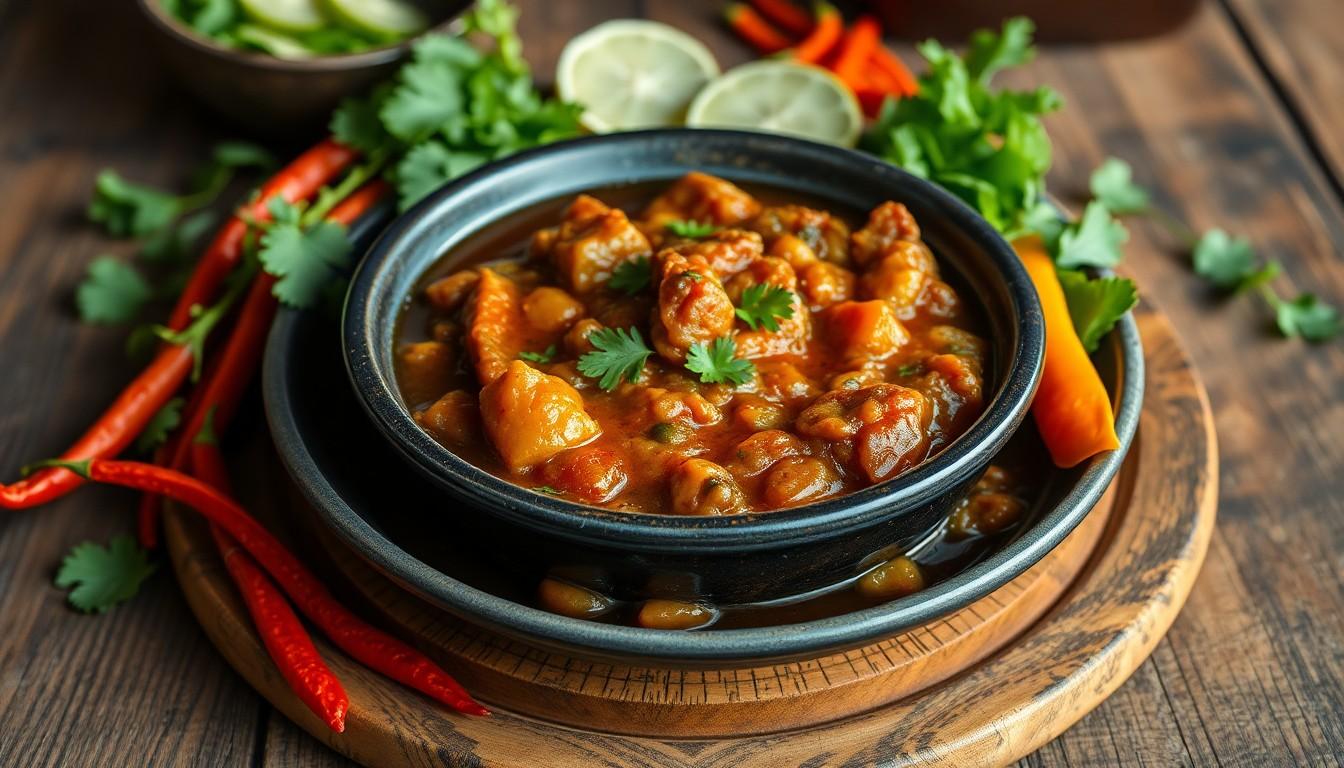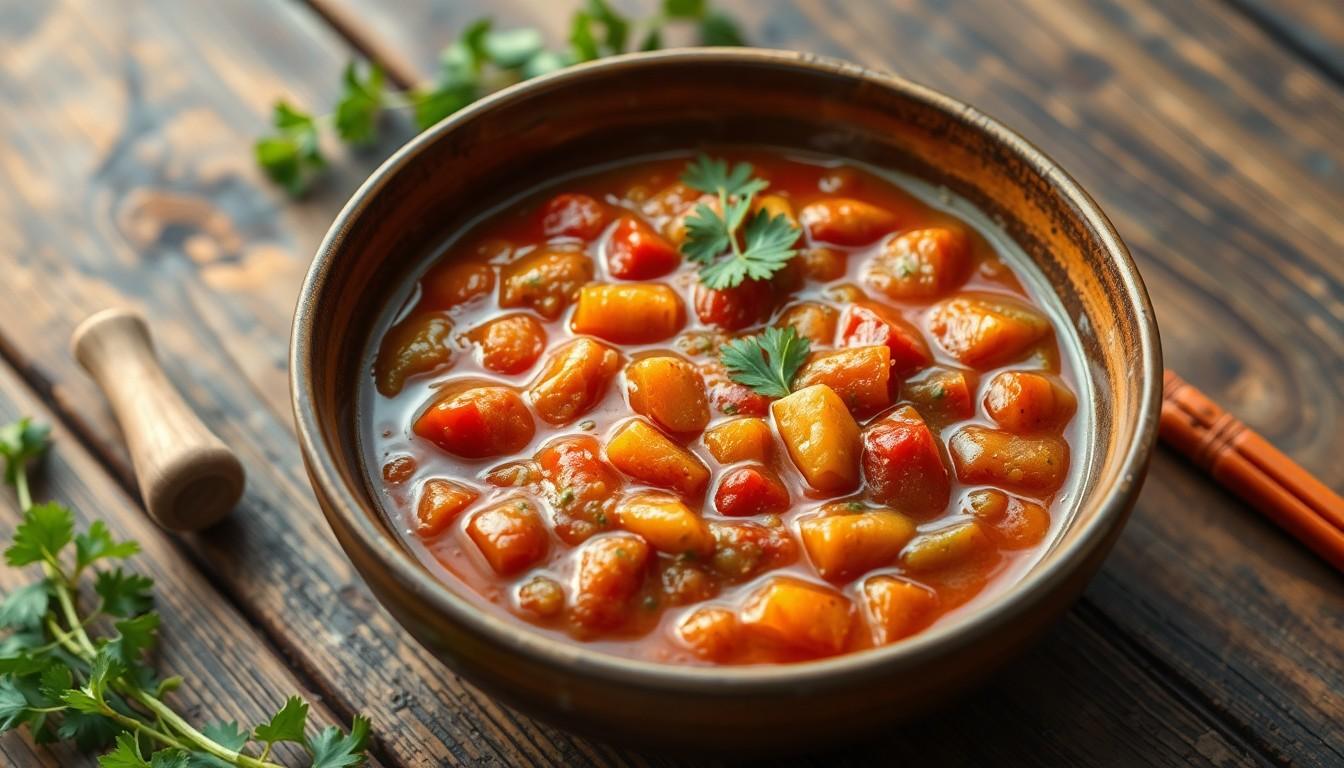Ever found yourself staring at a plate of yumkugu, wondering if it’s a culinary delight or a digestive disaster? This intriguing dish, with its vibrant flavors and unique texture, has many curious foodies scratching their heads. While it might look like a feast fit for a king, the real question is whether it’ll leave your stomach feeling like a royal mess.
Understanding Yumkugu
Yumkugu captivates many with its rich colors and intriguing textures. Exploring its composition and nutritional aspects provides insights into potential digestion challenges.
What Is Yumkugu?
Yumkugu represents a traditional dish with a unique preparation method. Originating from specific cultural backgrounds, it combines various ingredients that create an enticing flavor profile. Often made with root vegetables and spices, this dish features a thick consistency. Diners appreciate its aroma and distinctive taste, which can vary based on regional variations and cooking techniques.
Nutritional Profile of Yumkugu
Yumkugu boasts a diverse nutritional profile. Ingredients typically include vitamins, minerals, and dietary fiber. Root vegetables often found in this dish contribute significant carbohydrates and essential nutrients. Spices enhance taste while adding antioxidant properties. A standard serving contains approximately 200 calories, providing energy without excessive fat content. This dish can fit well into a balanced diet when consumed in moderation due to its health benefits.
Digestive Process

Understanding how yumkugu affects digestion requires exploring the digestive process itself. The human body breaks down food through a series of coordinated actions involving enzymes and acids. When food enters the stomach, gastric juices further disassemble it into simpler forms for absorption. Absorption predominantly occurs in the small intestine, where nutrients enter the bloodstream.
How Our Body Digests Food
Digestion starts in the mouth, where chewing and saliva start breaking down food. Next, food travels down the esophagus into the stomach, where strong acids continue the breakdown. In the small intestine, enzymes from the pancreas and bile from the liver become crucial. Nutrients from foods, including carbohydrates, proteins, and fats, pass through the intestinal walls into the bloodstream.
Specifics of Digestion for Yumkugu
Yumkugu, rich in fiber and complex carbohydrates, requires thorough digestion for optimal nutrient absorption. Its root vegetable base supports gradual digestion, which aids in maintaining steady energy levels. While yumkugu’s thickness can present a slight challenge, the presence of spices enhances digestive efficiency. Consuming yumkugu in moderation supports a healthy digestive process, preventing potential discomfort while promoting nutrient benefits.
Factors Affecting Digestibility
Several elements influence the digestibility of yumkugu, notably individual health and preparation methods.
Individual Digestive Health
Individual digestive health significantly dictates how well yumkugu is processed. Each person’s gut microbiome plays a crucial role, affecting nutrient absorption. Someone with sensitivities or underlying gastrointestinal conditions may struggle with digesting high-fiber foods. A well-functioning digestive system typically handles the complex carbohydrates in yumkugu more effectively. Factors such as age and lifestyle further contribute to digestive capabilities. Maintaining a balanced diet with adequate hydration supports optimal digestion. Personalized reactions to yumkugu can vary, making it important to consider individual health when evaluating its digestibility.
Preparation Methods of Yumkugu
Preparation methods significantly impact the digestibility of yumkugu. Traditional cooking techniques often involve boiling or steaming root vegetables until soft. Softening these ingredients enhances digestibility, allowing for smoother breakdown in the digestive tract. The incorporation of spices not only elevates flavor but also aids digestion by stimulating digestive enzymes. Using fresh, high-quality ingredients contributes to better nutrient availability. Additionally, variations in spices can influence individual tolerance and digestive ease. Different regional preparations may also introduce alternative ingredients that affect the overall digestibility of the dish.
Scientific Studies on Digestibility
Research supports the idea that yumkugu presents unique digestive characteristics. Studies show that dishes rich in fiber, like yumkugu, enhance gut health while promoting steady digestion. One research finding indicated that high fiber content helps regulate bowel movements, reducing constipation risks. Additionally, the presence of complex carbohydrates may assist in maintaining energy levels over time. Research also highlighted that preparation methods, such as boiling or steaming, significantly improve digestibility, allowing for better nutrient absorption.
Experts weigh in on the digestion of yumkugu, noting its overall benefits. Nutritionists recommend mindful consumption, advising moderation to prevent digestive discomfort. Gastroenterologists emphasize the importance of individual health, as digestive capabilities vary widely among individuals. They also suggest that fresh ingredients and spices commonly found in yumkugu can stimulate digestive enzymes, enhancing the overall digestive process. Furthermore, some experts highlight the positive effect of yumkugu’s nutrients on gut microbiome diversity, suggesting that its consumption contributes to better digestive health.
Conclusion
Yumkugu stands out as a flavorful dish that can be enjoyed without significant digestive concerns when approached mindfully. Its rich fiber content and nutrient profile offer numerous health benefits that contribute positively to gut health. While its thickness might present a slight challenge for some, proper preparation methods can enhance its digestibility.
Individual digestive health plays a crucial role in how yumkugu is processed. By considering personal health factors and consuming it in moderation, individuals can savor this unique dish while minimizing any potential discomfort. Ultimately, yumkugu can be a delightful addition to a balanced diet, promoting both enjoyment and digestive wellness.

